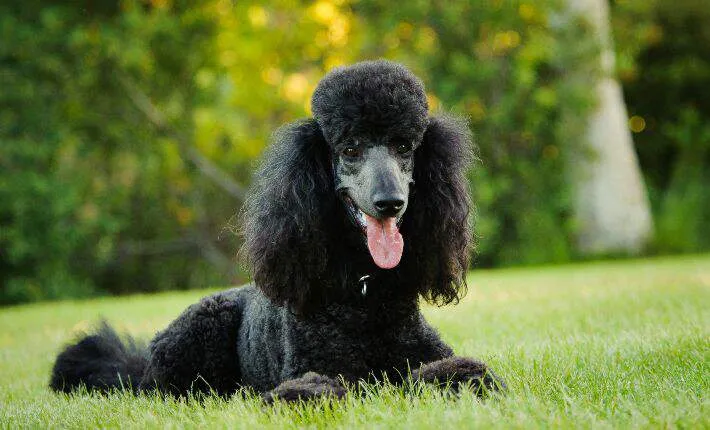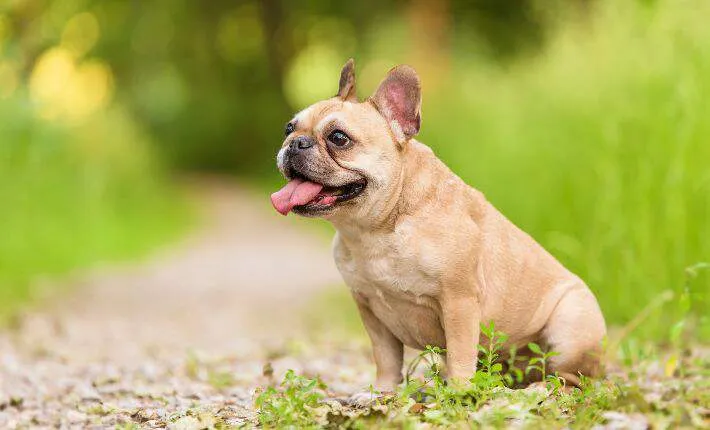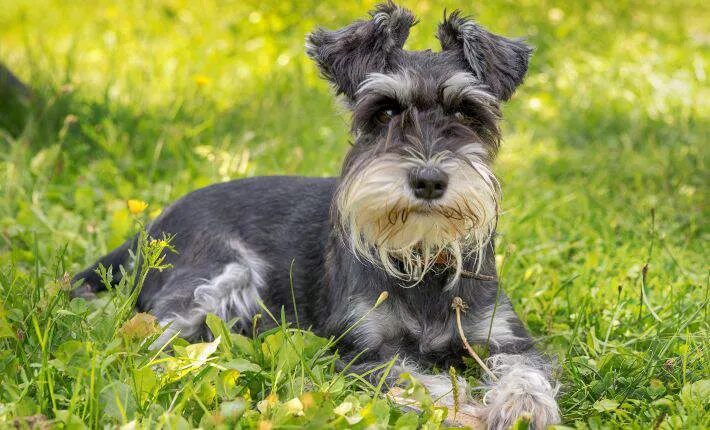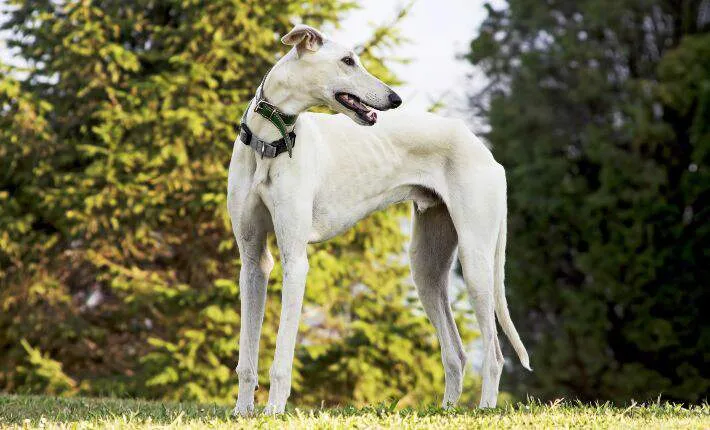Welcoming a dog into your life can bring immense joy and companionship at any age. For seniors, a canine companion offers more than just a furry face to greet; it can significantly enhance both physical and mental well-being. Studies, like those highlighted by Harvard Health Publishing, suggest that interacting with dogs can lead to reduced blood pressure and cholesterol levels, while simultaneously boosting mood-boosting serotonin. The benefits are reciprocal; seniors often have more flexible schedules, allowing for dedicated time and attention, which is ideal for a dog’s needs. While many breeds can make wonderful companions, certain characteristics make some dogs particularly well-suited for seniors. Looking to adopt an older dog or a breed known for its calmer disposition can be excellent starting points. Ultimately, the “best” dog depends on individual preferences and the dog’s unique needs, such as activity level and grooming requirements. This guide explores some of the top contenders for the Best Companion Dogs For Seniors.
Top Dog Breeds for Senior Companionship
When choosing a dog, considering their temperament, exercise needs, and grooming requirements is crucial. For seniors, breeds that are generally calm, adaptable, and not overly demanding in terms of physical exertion are often ideal.
1. Shih Tzu
 Shih Tzu enjoying a moment outdoors
Shih Tzu enjoying a moment outdoors
The Shih Tzu is an elegant and affectionate breed that thrives on love and attention. They are known for their outgoing nature, making them excellent playmates for visiting grandchildren.
- Temperament: Shih Tzus are incredibly affectionate and enjoy being close to their owners, whether cuddling on the sofa or following them around the house. They are generally amiable towards other people and pets. While mostly quiet, some can snore.
- Grooming: Shih Tzus are low-shedding but require daily brushing to prevent tangles and matting. Occasional professional grooming keeps their coat in top condition.
- Exercise: A daily walk is usually sufficient for a Shih Tzu. They are content to relax for the rest of the day, making them ideal for less active lifestyles.
- Fun Fact: The name “Shih Tzu” translates to “little lion” in Mandarin, reflecting their regal appearance.
Learn more about the loyal Shih Tzu.
2. Pug
 A Pug resting comfortably on a grassy surface
A Pug resting comfortably on a grassy surface
Pugs are perfect for seniors who cherish quiet companionship and enjoy lounging with their furry friend. Their primary activities often involve relaxing indoors. Due to their flat faces, Pugs can be sensitive to extreme temperatures.
- Temperament: Loving and loyal, Pugs are devoted to their owners and enjoy napping (often with snoring!). They are generally easygoing and eager to please, though they can become agitated if ignored. Happy-go-lucky Pug mixes also make wonderful companions.
- Grooming: Their short coat is easy to groom with occasional brushing. Pugs do shed significantly, and their facial folds require regular cleaning.
- Exercise: Short strolls and brief indoor or outdoor play sessions are adequate for the laidback Pug.
- Fun Fact: A group of Pugs is called a “grumble,” humorously referring to the nasal sounds they often make, as noted by The Daily Wag!
Discover more about the cheerful Pug.
3. Pembroke Welsh Corgi
 A Pembroke Welsh Corgi looking alert in the grass
A Pembroke Welsh Corgi looking alert in the grass
For more active seniors who enjoy outdoor activities like walks on nature trails, the lively Pembroke Welsh Corgi is an excellent choice. Their endearing appearance and spirited personality win hearts of all ages.
- Temperament: Sociable and fun-loving, Corgis want to be part of every family occasion. They are protective, devoted, and can make good watchdogs. However, they can be prone to barking if left alone or not sufficiently exercised. This breed requires adequate dog exercise.
- Grooming: Their double coat sheds heavily, necessitating regular brushing to manage shedding and keep furniture free of fur.
- Exercise: Corgis need multiple daily walks and thrive on activities that involve a task. They particularly enjoy dog play toys and other forms of mental stimulation.
- Fun Fact: Queen Elizabeth II was a renowned Corgi enthusiast, owning over 30 of them throughout her reign, according to Reader’s Digest.
Learn more about the enthusiastic Pembroke Welsh Corgi.
4. Poodle
 A Poodle standing proudly in the grass
A Poodle standing proudly in the grass
Poodles are highly intelligent and eager to please, making them easy to train. They come in three sizes – Toy, Miniature, and Standard – catering to various preferences. Poodles require sufficient exercise to maintain their well-mannered demeanor.
- Temperament: Poodles form strong bonds with their families and enjoy being pampered. They are clever, proud, and obedient. Poodle mixes like Cockapoos and Labradoodles are also wonderful companions.
- Grooming: Being low-shedding and hypoallergenic, Poodles still need regular brushing and monthly professional grooming to manage their long, stylish coats.
- Exercise: Energetic and muscular, Poodles benefit greatly from ample exercise, whether through swimming or long walks.
- Fun Fact: Recognized as the national dog of France, the Poodle is believed to have originated in Germany, as noted by PetMD.
Explore more information on the classy Poodle.
5. French Bulldog
 A French Bulldog sitting calmly on the grass
A French Bulldog sitting calmly on the grass
The joyful French Bulldog, or “Frenchie,” is known for being easy to care for and please, making them a fantastic choice for seniors. Their endearing personalities are irresistible.
- Temperament: French Bulldogs thrive on affection and are bright, curious, and playful. They generally get along well with other pets and people. Similar to other Bulldogs, they may snore and snort.
- Grooming: Their short, glossy coat requires minimal brushing and sheds very little. Regular cleaning of their facial wrinkles is essential.
- Exercise: Due to their shortened muzzle, French Bulldogs should avoid strenuous outdoor activities. Short walks or accompanying their owner on errands is ideal, providing valuable bonding time.
- Fun Fact: American breeders in the 20th century established the French Bulldog’s iconic “bat ears,” departing from the original “rose-shaped ears.”
Find out more about the friendly French Bulldog.
6. Miniature Schnauzer
 A Miniature Schnauzer with a distinguished beard on the grass
A Miniature Schnauzer with a distinguished beard on the grass
The handsome Miniature Schnauzer offers steadfast companionship and unwavering commitment to their senior owners. They are patient with children, making them suitable for households with grandchildren.
- Temperament: Miniature Schnauzers possess a strong, outgoing, and friendly personality. They are family-oriented, protective, alert, and obedient, making them quick learners during training.
- Grooming: As a low-shedding and hypoallergenic dog breed, they have a double coat that requires regular brushing and professional grooming.
- Exercise: This active breed enjoys daily exercise with their owner, such as games of fetch or longer strolls.
- Fun Fact: The Miniature Schnauzer’s distinctive beard historically served to protect it from bites while hunting rodents.
Read on about the spirited Miniature Schnauzer.
7. Greyhound
 A Greyhound posing gracefully in a grassy field
A Greyhound posing gracefully in a grassy field
Despite being the fastest dog breed, Greyhounds are surprisingly low-key and calm once their exercise needs are met. They are an excellent choice for seniors seeking a larger, yet manageable, companion.
- Temperament: Greyhounds are gentle, quiet, and compassionate. They can be independent and reserved around strangers. Due to their high prey drive, they must always be leashed outdoors.
- Grooming: Their short, smooth coat requires only occasional brushing.
- Exercise: Greyhounds are sprinters who benefit from a safe, enclosed area to run. They have limited endurance and are happy to relax after a burst of activity.
- Fun Fact: Greyhounds possess exceptional 270-degree vision, allowing them to spot objects up to half a mile away, according to Camp Greyhound.
Discover more about the sweet Greyhound.
8. Maltese
 A fluffy Maltese dog looking alert on the grass
A fluffy Maltese dog looking alert on the grass
The Maltese thrives on attention and adoration, making them a perfect lapdog for seniors. In return, they offer comforting companionship.
- Temperament: Lively yet gentle, Maltese dogs are intelligent and enjoy playtime, often entertaining their owners with cool dog tricks. They are highly attuned to their owner’s emotions and can be fearless and alert despite their delicate appearance.
- Grooming: While they shed very little, their silky white coat needs daily attention and occasional professional grooming. Attention to their eyes is necessary to manage tear stains.
- Exercise: Short walks and indoor or outdoor play sessions are sufficient for the Maltese.
- Fun Fact: Believed to have originated on the island of Malta, the Maltese is one of the oldest Toy Group breeds in Europe, according to Animal Planet.
Learn more about the spunky Maltese.
9. Cavalier King Charles Spaniel
 A Cavalier King Charles Spaniel sitting patiently on the grass
A Cavalier King Charles Spaniel sitting patiently on the grass
The adaptable Cavalier King Charles Spaniel, or “Cavalier,” easily fits into any lifestyle, including that of a senior pet parent. They can be a cuddle buddy one day and an adventurous companion the next, always following their owner’s lead.
- Temperament: Cavaliers are laidback, intelligent, and quiet. They are friendly towards people of all ages and other pets, making friends easily. They are also highly trainable and patient.
- Grooming: Their long, silky coats require brushing several times a week, and their ears need regular cleaning.
- Exercise: Cavaliers readily match their owner’s activity level, content with brisk walks and playtime, or simply relaxing on the couch.
- Fun Fact: Named after King Charles II, who was famously fond of them, Cavaliers were constant companions to the monarch, accompanying him everywhere, as per the American Kennel Club.
Explore more about the enchanting Cavalier King Charles Spaniel.
10. Pekingese
 A regal Pekingese dog with flowing fur on the grass
A regal Pekingese dog with flowing fur on the grass
The regal Pekingese is the ultimate lapdog and a true charmer. They are best suited for seniors who prefer a calm atmosphere, as they are not fond of rough play.
- Temperament: Extraordinarily loyal and affectionate, Pekingese often form a deep bond with one person. While independent, they should be socialized early to other people. They can be stubborn during dog training but possess bold and dignified personalities.
- Grooming: They shed seasonally and have a soft double coat that requires daily brushing to prevent tangles and mats.
- Exercise: With a shortened muzzle, Pekingese should not engage in strenuous exercise. Quick walks and short bursts of playtime are ideal.
- Fun Fact: In ancient China, the smallest Pekingese were called “Sleeve Dogs” because emperors would carry them in their wide sleeves, according to Britannica.
Find out more about the confident Pekingese.
The Joy of Senior-Dog Companionship
The dogs listed offer a variety of delightful qualities, and the choice ultimately comes down to personal preference. Beyond these top ten, other breeds like the Cocker Spaniel, Yorkshire Terrier, Pomeranian, and Scottish Terrier also make excellent companions for seniors. If you’re considering adopting, looking to adopt an older dog can be a rewarding experience, as many older dogs are already trained and have a calmer demeanor.
The impact of a furry friend on a senior’s life is profound, and conversely, seniors provide loving forever homes that greatly benefit their canine companions. It’s crucial to remember that adopting a dog is a significant commitment. While the idea of a pet companion might be perfect for someone, it’s essential to involve them directly in the decision-making process and never presume to adopt a dog for someone else without their explicit consent and input. For those interested in specific breed traits for senior dogs, exploring top 10 dogs for seniors can offer further insights. Understanding what age is considered senior for a dog can also help in making informed choices.
References
- Harvard Health Publishing. “Having a Dog Can Help Your Heart—Literally.”
- The Daily Wag! “9 Facts About Pugs.”
- Reader’s Digest. “Queen Elizabeth II and Her Corgis.”
- PetMD. “5 Fun Facts About Poodles.”
- Camp Greyhound. “Interesting Greyhound Facts.”
- Animal Planet. “5: The Maltese Breed Is Thousands of Years Old.”
- American Kennel Club. “Cavalier King Charles Spaniel: History Behind the Breed.”
- Britannica. “Pekingese.”
